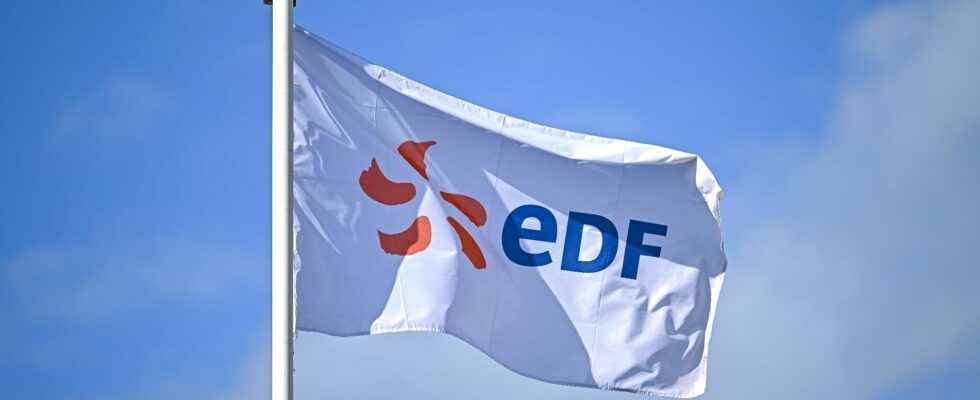Is EDF dependent on the Russian nuclear bear Rosatom? At a time when the State stands ready to massively relaunch nuclear power in France, with the idea of sovereignty in majesty, the chained duck reveals the nature of very annoying contracts at the electrician. According to the weekly, no less than 345 million euros of enriched uranium have been purchased by EDF from the Russian giant, ie approximately 290 tonnes of enriched uranium. Out of an annual consumption of nearly 1,000 tons, this represents a volume almost equivalent to one third. Earlier in November, the delivery of re-enriched reprocessed uranium to Russia – a by-product of fuel recycling – was also announced by the press. A blow to the idea of energy sovereignty which gargles the French civil nuclear sector and now part of the political class.
In recent hours, EDF has obviously been embarrassed, forced to recognize the existence of contracts with Russia, although not confirming the figures of the Duck. Given EDF’s stocks, which are said to represent 10 years of consumption for its fleet, we know that there is no danger in delay. The decision to continue to trade with the Russians depends less on a risk of shortage than on pre-existing contracts with the war in Ukraine. Since uranium is not under European sanction, it is difficult for EDF to denounce these contracts for cases of force majeure, without risking paying serious penalties. A speech echoing that of Patrick Pouyanné, the CEO of TotalEnergies, who explains that the maintenance of its activities in Russia is linked to these long-standing gas contracts with Moscow.
Guilty discretion
No doubt one could point out that unlike the oil and gas giant, EDF does not fully play cards on the table on this subject. To questions from journalists about the existence of such contracts, the electrician has been very discreet for several months, leaving Greenpeace too happy to occupy the field by pointing out these incestuous liaisons and using them to discredit nuclear power. (often with other fallacious arguments). This lack of transparency is culpable, it annoys a lot of French nuclear defenders, as L’Express has seen in recent hours by talking to some of them.
That EDF holds contracts with the Russian group is not in itself unforgivable. Like any diligent industrialist, EDF diversifies its sources of supply with different suppliers. Rosatom, the world leader in the uranium enrichment and conversion industry, is a player that has so far proven to be totally reliable, and can offer advantageous market conditions to EDF for to supply itself with uranium and to produce its fuel – this, although this represents only 5% of the operating cost of a reactor. In its defense, the public group also could not anticipate the start of the conflict in Ukraine.
Transparency and acceptability same fight
But if EDF is indeed the company with a raison d’être that it claims, it cannot fail in its duty of vigilance and must make a clear and transparent inventory of all the links that bind it to Russia. , as well as what it is trying to put in place to reduce its contracts with the Russian giant. Cut off dialogue with Rosatom…probably easier said than done. On uranium, EDF has that said with the French Orano (ex-Areva) on the one hand, and the Anglo-German-Dutch Urenco on the other hand, players from whom it would be possible to ask for more. Orano, which has two extremely modern plants, is also considering a project to extend its uranium enrichment plant, but says it is waiting for firm and long-term customer orders… an obvious call for EDF.
Let us also remember that in 2018, EDF deliberately chose Rosatom to convert and enrich its reprocessed uranium, while Orano was available – even if it would have needed additional facilities, including a conversion site. EDF has thus strengthened the tenacity of the link with Rosatom, to the detriment of the French nuclear team. Paradoxically with the takeover of GE Steam Power imposed by the executive, EDF has even strengthened its commercial ties with the Russian giant since the start of the war, the Russian buying almost half of the Arabelle turbines that come out of the factory. of Belfort.
In recent months, through the management of stress corrosion which has shut down part of its reactors and risks costing tens of billions to the electrician in 2022, EDF has shown that it is an operator accountable, whose transparency has improved enormously. The Nuclear Safety Authority itself admits this. But transparency does not stop at the safety limits of power plants. While the debate on the future energy mix of France will be at the heart of the next debates in the National Assembly and in particular at the time of the climate energy programming law of this summer, EDF is once again giving food for thought to opponents nuclear power, at a time when it has probably never enjoyed such an aura among our fellow citizens. It is clear after the episode of Taishan last year that EDF still allows itself some discrepancies on the information it provides, when it comes to its activities abroad… The transparency of this industry is however the sine qua non of its acceptability.
